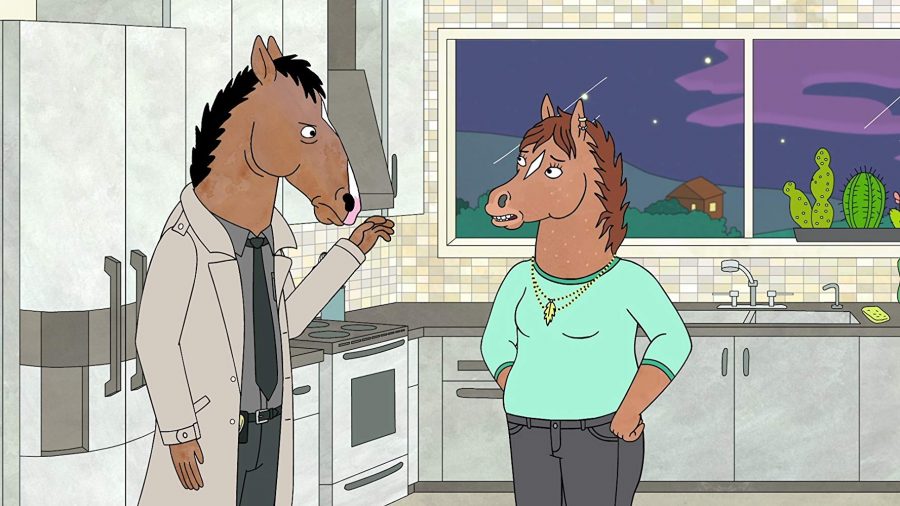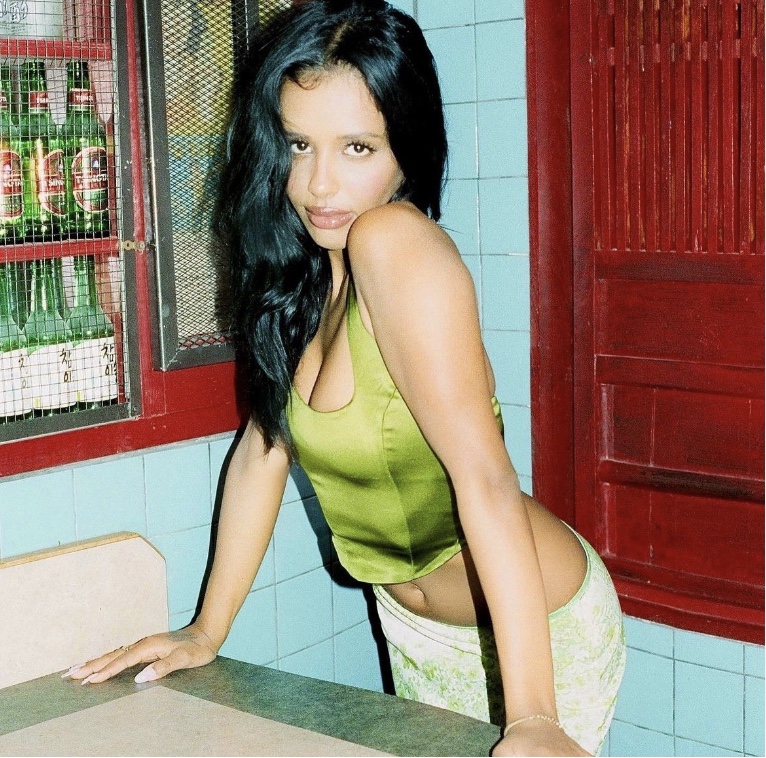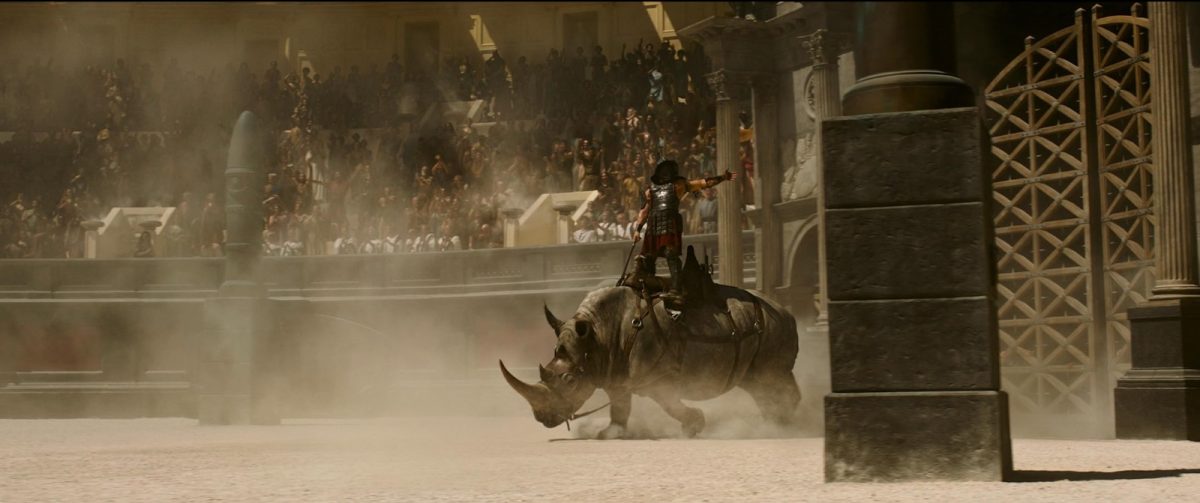Season five of BoJack Horseman was released on Netflix on Sept. 14 and it has proven itself to be both the most hilarious and depressing season. Socially, BoJack Horseman has taken strides in satirizing Hollywood power dynamics, gratuitous sexualization and public reactions to celebrity faults. From animal-based puns, alliterations and quick rhyming schemes to dark humor and a glimpse into the life of a self-medicating depressive, this remarkably self-aware show promises to have viewers waver between laughter and self-reflection.
BoJack’s departure from sanity begins with a vodka bottle divided into sevenths and ends with a harrowing journey to rehab, but his journey throughout the season is one that any addict would find all-too-familiar. It begins with self-medicating and the belief that one is still in control and only comes to a turning point after a realization that things are far from ‘in control.’ The notion of “just one more” and the rationalization of destructive behavior are not unique to drug addiction; these are universal urges, and BoJack’s self-analysis throughout the show forces viewers to take a sobering look at their own lives. BoJack consistently confronts harsh truths from his past, and this guilt is what motivates his current actions.
BoJack isn’t the only character with a riveting arc this season. Princess Carolyn deals with the competing desires to continue a successful career and embark on single motherhood, as well the corresponding insecurities of any parent-to-be. Todd confronts his asexuality and life direction, albeit through a secondary motivator. Diane struggles with personal identity, travelling across the world in an attempt to reconnect with family history she finds absent at home, but only to feel like another tourist in the end.
Comedically, the show is packed with puns, niche references (“Quack DeMarco”, “…while a Leonard Cohen song plays”), misdirection, witty one-liners (“I’m as deep in contractions as apostrophes”) and slapstick humor. Todd’s character provides levity from the graveness of BoJack’s scenes, being inept and gullible. Mr. Peanutbutter offers continuous popculture digs, with a persistent format that reinforces his annoyingly optimistic persona. One notably comedic addition to season five was the deconstruction of television tropes via a television show, revealing their hollowness, and allowing viewers to laugh at their folly.
At its core, BoJack Horseman is a show that addresses humanity, in an entertaining fashion, but it offers something distinct from other television shows. It offers something raw and gritty — something that isn’t just a half hour break from day-to-day life. BoJack creates a seriousness that lingers with the viewer far longer than the duration of the episode.








